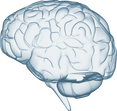|
FIND OUT WHAT AUDITORY PROCESSING DISORDER IS, AND THE SIGNS OF IT.
Don't be fooled by the word "auditory." APD isn't a hearing problem; it's about how well the brain is processing the sounds that the ear receives. Find out the signs, assessments, and options for children, teens, and adults with APD.
0 Comments
VIA: National Public Radio, TED radio hour.
Why do many of us hate, even fear math? Why are we convinced we're bad at it? This hour, TED speakers explore the myths we tell ourselves and how changing our approach can unlock the beauty of math. It’s painful watching your child struggle in school, but there are things you can do to help. Find out how to turn “This is too hard!” to “I can do this!” with these 5 tips.
We’ve seen examples of “old-fashioned” bullying since the TV made its appearance in the American household; the mean boy shoving the weaker child on the playground, or the rich girl making fun of the orphan dressed in rags. But modern bullying often takes the form of less obvious taunting, exclusion, or uses multimedia to spread photos, videos, and gossip like wildfire.
Why are kids with learning struggles common targets? While the victim of bullying in a 1950s TV show might eventually see a happy ending, today’s victims of bullying often endure years of depression, anxiety, fear, or humiliation.  With advances in technology and medicine, our understanding of the brain—and how to study it, improve it, and even fix it—is expanding. Here are 8 of the biggest brain-related breakthroughs we witnessed in 2018. 1. New Alzheimer’s Drug May Slow Decline A company called Eisai and its U.S. partner Biogen presented some impressive results to the Alzheimer’s Association annual meeting in July. An experimental drug called BAN2401 was found to produce a 47% reduction in cognitive decline in 18 months. The lab-engineered immune system protein works by removing amyloid plaques from the brain. At its highest dose, the drug cleared the plaques from the brains of the patients by 93%. The companies are currently working on an advanced Phase 3 clinical trial, which is the final stage before they seek full approval from the Food and Drug Administration. https://www.nbcnews.com/health/health-news/experimental-drug-slows-alzheimer-s-decline-researchers-report-n894646 2. Cognitive Skills Training Increases Post-test Scores and Behavior for Students with ADHD In a randomized controlled study published in Neuropsychiatric Disease and Treatment, a team of researchers at the Gibson Institute of Cognitive Research examined the transfer effects of cognitive skills training on brain skills and behavior in children with ADHD. Specifically, the research looked at a one-on-one cognitive training program’s effects on memory, visual and auditory processing, processing speed, reasoning, attention, overall IQ, and behavior for students ages 8 to 14. The results showed greater pre-test to post-test change in scores on all variables for the treatment group versus the control group with statistically significant differences noted in working memory, long-term memory, logic and reasoning, auditory processing, and IQ score. https://www.ncbi.nlm.nih.gov/pmc/articles/PMC6027847/ 3. Concussion Symptoms in Young Children Last 3x Longer Than Older Teens and Adults Researchers from the New York Institute of Technology College of Osteopathic Medicine found that concussions can have a prolonged effect for children under age 13. They found that while an adult might take only a week to recover from a concussion’s symptoms, young children could take two to three weeks. The researchers theorized that the prolonged symptoms might be due to the fact that children are more vulnerable to conditions like ADHD, stress, anxiety, and depression. https://www.consumeraffairs.com/news/concussion-symptoms-in-young-children-last-three-times-longer-than-older-teens-and-adults-study-finds-091918.html 4. Largest Brain Imaging Study Ever Identifies Drivers of Brain Aging In the largest brain study of its kind, researchers looked at 62,454 brain SPECT scans from more than 30,000 people to investigate factors that accelerate brain aging. The scans came from a wide span of ages, from 9 months old to 105 years old. Accelerated aging was interpreted by comparing the scan to the actual chronological age of the person. Researchers studied 128 brain regions in an attempt to predict the chronological age of the person. They found that among other disorders, alcohol, schizophrenia, and cannabis use were related to the brain aging faster. https://www.sciencedaily.com/releases/2018/08/180821112010.htm 5. ThinkRx Produces Changes in Brain Connectivity for People with TBI A study published in the Journal of Neuroimaging found that brain connectivity and changes in brain connectivity were evident after completing a robust cognitive training program called ThinkRx. The subjects had varying degrees of traumatic brain injuries (TBI) and for all cases, neuropsychological testing and qualitative outcomes measures, increased. Normalization of DMN connectivity, including decreased hyper-connectivity and reoccurrence of anticorrelated activity was evident in the most severe TBI case. At the group level, significant training-induced changes in neural connectivity were identified. https://www.gibsonresearchinstitute.org/wp-content/uploads/2018/03/Neuroimaging-Outcomes-for-TBI-and-MCI_J-of-Neuroimaging.pdf 6. ADHD Tied to Increased Concussion Risk for Kids Compared to other youth, children, teens and young adults with ADHD may be more than four times more likely to sustain traumatic brain injuries (TBI). This comes from a study that examined national health insurance data on more than 73,000 youth with ADHD, ages 3 to 29 years old, as well as a control group of similarly aged people without ADHD. While only 2.2% of the control group had a TBI, about 9.8% of the group with ADHD had experienced a TBI. The researchers point out that impulsivity is “very much linked with risky health behaviors.” https://www.reuters.com/article/us-health-adhd-tbi/adhd-tied-to-increased-concussion-risk-for-kids-idUSKBN1KE32H 7. Researchers Close in on CTE Diagnosis in Living Humans Although diagnosing CTE is currently only possible post-mortem, researchers believe they’re getting closer to being able to diagnose the neurodegenerative brain disease in living humans. At the CTE Center at Boston University’s School of Medicine, researchers are happy to see the stigma of CTE being lifted because former players and their families are less reluctant to donate their brains. Now, brains arrive at the facility almost every day. This gives the researchers more opportunities to study CTE and they’re learning more about white matter structural changes and inflammatory changes, which is giving them new insight that may soon help them study the disease in living people. https://www.learningrx.org/researchers-close-in-on-cte-diagnosis-in-living-humans/ 8. Aging Brain Can Still Grow, Regenerate Cells Where once researchers told us that the brain stops growing, a new report says that may not be true. Research published in Cell Stem Cell examined the brain tissue of healthy older men and women and found they can generate just as many new brain cells as younger people. This was even found to be true in the hippocampus, the part of the brain that is important for memory, emotion, and cognition. The researchers also found that the better the blood flow to the area of the brain, the greater the chance of cell regeneration. https://www.learningrx.org/researchers-find-aging-brain-can-still-grow-regenerate-cells/ BrainRx wasn’t born overnight. In fact, the company and its programs encompass a long development process of trial and error dating back to 1968. As you’ll read on the timeline below, even significant successes weren’t enough for BrainRx Founder Dr. Ken Gibson. His formula for developing the best cognitive skills training program was always the same: Trials + Results = More Research + More Development. It took 35 years of repeating this formula with four contiguous experimental programs that Dr. Gibson finally got the fast and unprecedented gains he was after in a one-on-one brain training company. Here is a booklet of some of the most significant research, studies (some with and some without control groups), and developments related to his work in cognitive skills training. 5 Myths about Our Brain and its PerformanceWe are used to hearing a lot of myths and misconceptions about our brains’ capacity and performance. And such myths lead our thinking as parents to judge kids’ performance or their abilities to use of their skills at most.
That is why, we are taking advantage of Brain Awareness Week to discuss five major Myths about the brain and show the real facts about it. Brain Myth #1: Your brain stops changing and improving after a certain age. Fact: Your brain continues to change throughout your whole life. Neuroplasticity is the term used to describe the brain's ability to change at any age, for better or worse. SOCIAL MEDIA AND THE TEEN BRAIN – HOW TO MAKE IT WORK FOR THEMby Karen Young, Via www.heysigmund.com Teens and social media are a modern-day love story – mostly inseparable, and with plenty of ups, downs and drama. Social media is still relatively new, and there’s still a lot to learn. The more we can understand about social media and its effect on teens, the more we can help them manage it in ways that will enrich them and see them flourish into the happy, healthy adults they are all capable of being.
In a groundbreaking study, published in the journal Psychological Science, teenagers had their brains scanned while they used social media. Thanks to some brilliant technology, and social media’s almost magical way of having teens be still for a while, there were some remarkable findings. 4 Phrases Teachers Say during Parent’s Meeting: What do they really mean?How to interpret what teachers say during parent’s meeting?
Parent-teacher meetings carry many messages you might not be aware of. Some of these comments a teacher, or several teachers, may make about your child’s performance at school need to be translated to understand what the core issues are that your child is facing. when these issues are not taken seriously, your child may have difficulties in the coming school years, while when addressed at any early stage, these can be avoided easily First Phrase: We often hear the sentence, “Your child is smart, but if he could only focus a bit more,” or “Your child is very smart, he just does not fully apply himself.” These sentences usually indicate that your child has many strong cognitive skills, but might be lacking in one or two, making him act in certain ways. These examples might indicate a weakness in attention and concentration. This, of course, can affect other activities and not just academics. Second Phrase: Let us go into more details. When a teacher says “your child is smart but takes a long time to finish a certain task”, or “is one of the last to finish the assigned classwork”. In this case, a weak skill might be behind such phrases. Some of these kids might be perfectionists, but, if it is a frequent occurrence then a cognitive weakness is on hand. This might show that processing speed is an issue, that your child is not able to finish the assigned task in the indicated time and would usually cause long homework sessions at home too! Second Phrase: Sometimes, the phrase might result in some sort of confusion. For example, your child performs well in one test and does not in the one that follows. In this case, teachers say that his work level is fluctuating, and they tend to ask for higher levels of performance. This preference comes from the fact that, since the child managed to get a good result once, he can easily get good grades and at all times. In this case, the child might have different levels of cognitive skills, where some are high levels while others are low! This results in a variation of output depending on the skill used at that exact test. Third Phrase: Is your child not reading up to his grade level? This is usually related to a cognitive weakness in auditory processing, or phonemic awareness. This skill is what is needed from us to unglue, blend, segment and manipulate different sounds. Reading difficulties can be caused by many other weak skills including visual processing, attention, memory, and processing speed. If these phrases are common during the school year, then your child might need to schedule an assessment to determine which skills are weak and what can be done to help train those skills! |
ArchivesCategories |
|
© COPYRIGHT 2018. ALL RIGHTS RESERVED.
|





 RSS Feed
RSS Feed